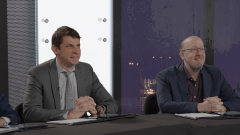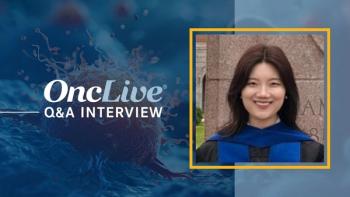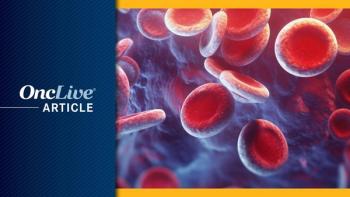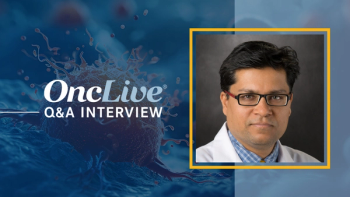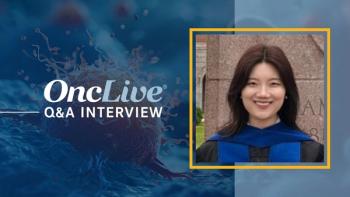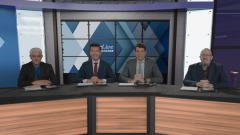
CAR T-Cell Therapy in Patients With MCL: Clinical Trial and Real-World Data
A panel of experts in hematologic malignancies analyze clinical studies and real-world data of brexucabtagene autoleucel in mantle cell lymphoma.
Episodes in this series

Transcript:
Alexey V. Danilov, MD, PhD: Clinical trials are clinical trials. Sometimes they look beautiful. But then we do real-world analysis, and sometimes that’s where things fall apart. There was some real-world analysis done with brex-cel [brexucabtagene autoleucel]. Boyu, do they confirm the data that we saw in ZUMA-2? Or do they help us manage toxicities better? What do you think?
Boyu Hu, MD: I love looking at real-world data because for these clinical trials, we select for these super-healthy patients, which we never see in clinic. They’re the white dragon, in terms of a patient who has perfect organ function. Looking at real-world data with “imperfect” patients who don’t fall into a clinical trial is helpful in figuring out if it’s still safe and efficacious. In these retrospective studies, anywhere from 50 to 100 patients confirm that brex-cel is quite effective with overall response rates of 70% to 80% and CR rates right around there as well. The safety is right around what we saw in clinical trials as well. There’s still a relatively high amount of neurotoxicity, just as with your patient. The CRS [cytokine release syndrome] is a bit lower, but it was around where the clinical trials were. These studies have confirmed that brex-cel is safe and effective, as it was on the clinical trial.
Alexey V. Danilov, MD, PhD: Thank you. That’s great to hear. Nevertheless, we don’t believe we necessarily cure these patients—not even a functional cure. I understand some skepticism is in order. But there are strategies for how we can try to improve efficacy of CAR [chimeric antigen receptor] T cells or mitigate adverse events. Even BTK [Bruton tyrosine kinase] inhibitors have some immunomodulatory properties. Matt, are there any studies that might be promising in terms of combination therapy with CAR T?
Matthew J. Matasar, MD: That’s a good question. There’s obviously a lot of interest in our world about how to make CAR T cells better. One strategy that we’re collectively pursuing is giving adjuvant treatments to the CAR T cells to enhance the CAR T-cell product. That can be enhanced expansion, so you get more cells around. It can be enhanced persistence, so they stick around and do the work and try to reduce the occurrence of late clonal relapses. Or it can try to be improving their fitness and decrease the experience of T-cell fatigue and exhaustion that impacts the ability of persistent cells to do their job.
One approach that we saw reported at ASH [American Society of Hematology Annual Meeting] was…ibrutinib was given not with the intention of treating disease but in trying to enhance T-cell fitness. They were giving it before T-cell apheresis, so the T cells had experienced the ibrutinib. It was given then throughout the treatment with CAR T cells and maintenance afterward for a measure of time, all with the goal of trying to improve outcomes. We did see an interesting biological signature. We did see a greater T-cell expansion and some measures of improved immune microenvironment with this treatment. I’m not sure that the clinical outcomes were distinctly different from what we would have expected with tisagenlecleucel without ibrutinib, but it’s at least a foray into this world of trying to give treatments to enhance CAR T-cell functionality. That’s a strategy with promise.
Alexey V. Danilov, MD, PhD: Lenalidomide is an immunomodulator.
Matthew J. Matasar, MD: That’s what they say.
Bijal D. Shah, MD: It is. Careful.
Alexey V. Danilov, MD, PhD: Is that the way it will be used now or studied?
Matthew J. Matasar, MD: A lot of agents that have the potential when you push the arrows…to figure out what we might be able to give. Lenalidomide and CELMoDs are interesting options. There are some nice in vitro data looking at PI3K inhibition and its ability to enhance CAR T fitness. There are a lot of ways that we can move this field forward. Doing this work quickly and carefully is very valuable.
Transcript edited for clarity.


